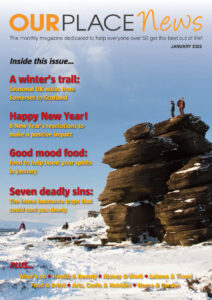Over-50s and disabled most under-represented in broadcasting
Diamond report says disabled people make up 5.5% of off-screen staff in TV although they are 18% of national population.
 The Guardian reports that disabled people make up just 6.5% of on-screen staff and 5.5% of off-screen staff in television, even though 18% of the national population have a disability. Over-50s – who are 36% of the population – make up 24.2% of on-screen and 20.4% of off-screen workers.
The Guardian reports that disabled people make up just 6.5% of on-screen staff and 5.5% of off-screen staff in television, even though 18% of the national population have a disability. Over-50s – who are 36% of the population – make up 24.2% of on-screen and 20.4% of off-screen workers.
The findings are in a provisional report by Diamond, a project set up in 2015 by the major broadcasters, including BBC, ITV, Channel 4, and Sky, to monitor diversity in the industry. The project has generated significant controversy in the broadcasting industry because it does not break down the diversity of each organisation. Bectu, the trade union, and the Writers’ Guild of Great Britain threatened to boycott the report over the refusal to publish details about the broadcasters.
Just 24% of the individuals working in television who were asked to submit information to the survey did so. This is equivalent to almost 6,000 people. However, the quality of the data has been approved in an independent review by the National Centre for Social Research. The report states that 21.5% of on-screen workers have a black, Asian or minority ethnic (BAME) background but this slumps to 10.1% for off-screen. This compares with 13% of the UK population with a BAME background. The findings are likely to increase calls for Ofcom to set targets for the number of BBC off-screen workers with a BAME background. The media regulator is under growing pressure to take action over the issue.
Diamond shows that women take up 48.1% of on-screen roles and 54.6% of off-screen roles, when they make up 51% of the population. LGB people take up 13.2% of on-screen roles and 11.7% of off-screen, and are 6.4% of the UK population, while 0.8% of on-screen roles are fulfilled by transgender people, the same proportion they form of the population as a whole. No transgender off-screen workers were recorded.
Deborah Williams, chief executive of the organisation behind Diamond, the Creative Diversity Network, said: “Diamond has been, and still is a hugely complex project to deliver. We now have an operational and systematic approach to collecting meaningful data across the UK industry. Diamond was built to provide long term monitoring, and with less than a year’s worth of data, it would be premature to draw conclusions from it or set definitive benchmarks. “However, Diamond represents a committed decision by leading UK broadcasters to deliver a change. Now we need every individual within the industry to support the project by entering their data when asked and we will have a real opportunity to take Diamond to the next level and bring about the ambitious change we all want.”
(Story source: The Guardian)

